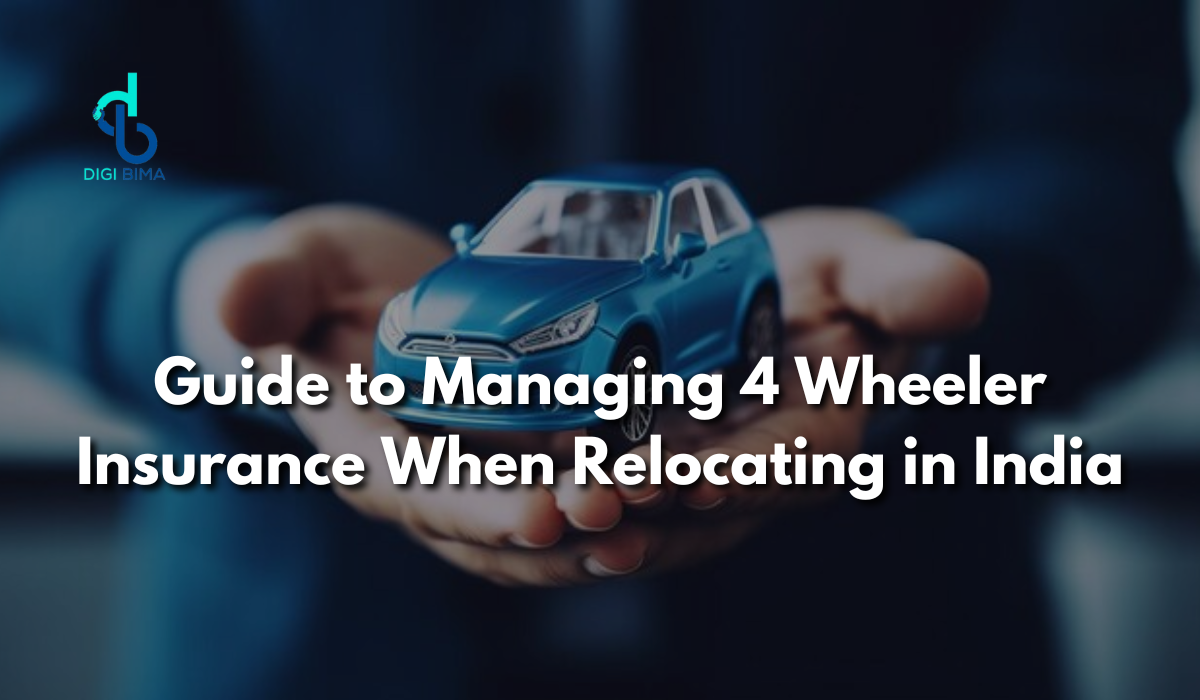Relocating within India can be an exciting journey, filled with the anticipation of new experiences and opportunities. However, amidst the packing and planning, one critical aspect often overlooked is the management of your 4 wheeler insurance.
As you move from one state to another, the rules, premiums, and compliance requirements can vary, affecting your existing vehicle insurance coverage. This comprehensive guide will help you navigate the complexities of managing your 4 wheeler insurance during relocation, ensuring you stay protected and compliant throughout the process.
Understanding the Need for Insurance Management During Relocation
When you relocate, your risk profile as a driver changes. This change is due to differences in traffic conditions, theft rates, and accident statistics in various regions. Consequently, insurance companies may reassess your 4 wheeler insurance policy premiums based on your new location.
Moreover, each state in India may have different legal requirements regarding vehicle insurance, necessitating a review and possible adjustment of your existing policy.
Steps to Manage Your 4 Wheeler Insurance When Moving
1. Inform Your Insurance Provider
The first step after deciding to relocate should be to inform your current insurance provider about your move. This is crucial as it affects your risk assessment and premium. Most insurers require notification within a specified period (typically 14 to 30 days after relocating). Failing to do so can lead to complications in the event of a claim on your 4 wheeler insurance policy.
2. Update Your Registration and Address
Once you move, it’s important to update your vehicle’s registration to reflect your new address. This process involves contacting the Regional Transport Office (RTO) in your new locality. You must also update your address with your insurance provider so that all correspondence and necessary documentation related to your 4 wheeler insurance policy can reach you without issues.
3. Assess the Need for Additional Coverage
Relocating to a new state might expose your vehicle to different risks. For example, moving to a coastal area might warrant additional coverage for damage from flooding, which might not have been necessary at your previous inland residence. Evaluate your new environment and consult with your insurer about any recommended additional coverages for your 4 wheeler insurance policy.
4. Check for No Claim Bonus (NCB) Transfer
If you have accrued a No Claim Bonus (NCB) on your insurance, ensure that it is transferred when you update your 4 wheeler insurance policy. NCB is a discount given for not making any claims during the policy term and is transferrable from one policy to another or when changing insurers.
5. Compare Insurance Policies
After moving, it might be beneficial to shop around for a new insurance policy that better suits your needs and budget in the new location. Platforms like Digibima can be immensely helpful here, allowing you to compare different 4 wheeler insurance policies from various insurers in India.
6. Understand the Local Traffic Laws and Regulations
Each state in India can have slightly different traffic laws and insurance requirements. Familiarize yourself with these to ensure your 4 wheeler insurance policy meets all local legal standards.
Managing Premium Adjustments
Premiums can vary significantly between different regions in India due to varying risk levels. For instance, densely populated cities might have higher premiums due to a higher likelihood of accidents and thefts. Conversely, premiums might be lower in rural areas. Upon relocating, discuss with your insurer how your 4 wheeler insurance policy premium will adjust and what factors influence the change.
Real-Life Example
Consider the case of Mr. Singh, who relocated from Hyderabad to Mumbai. Upon moving, he informed his insurer about the change in location and requested an update of his policy details.
His premiums increased slightly due to the higher risk associated with living in a more congested city. However, by comparing policies using an insurance aggregator, he was able to find a policy that offered additional benefits at a competitive rate, effectively managing his costs while enhancing coverage.
Conclusion
Successfully managing your 4 wheeler insurance when relocating within India is crucial for maintaining uninterrupted protection and compliance. By taking the appropriate steps to update and possibly enhance your insurance coverage, you can ensure a smooth transition to your new home while keeping your vehicle adequately insured against potential risks.
FAQ Section
Q1: What happens if I don’t inform my insurer about my relocation?
A1: Failing to inform your insurer about relocating can lead to issues during claims, as your coverage might not be accurately aligned with your risk profile based on your new location.
Q2: How long do I have to update my vehicle registration after relocating?
A2: The time frame can vary by state, but typically you should update your vehicle registration within 30 days of relocating to avoid penalties.
Q3: Can I maintain my old insurance policy after moving to a new state?
A3: You can maintain it, but it is advisable to update your policy details to reflect your new location to ensure that your insurance is valid and accurately priced according to your new risk profile.
Q4: Does relocating affect my No Claim Bonus?
A4: No, relocating does not affect your No Claim Bonus. However, you should ensure that it is transferred if you change your policy or insurer.


